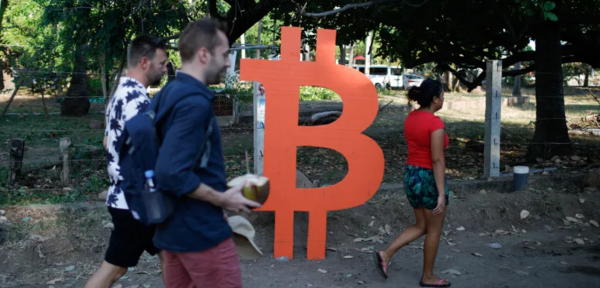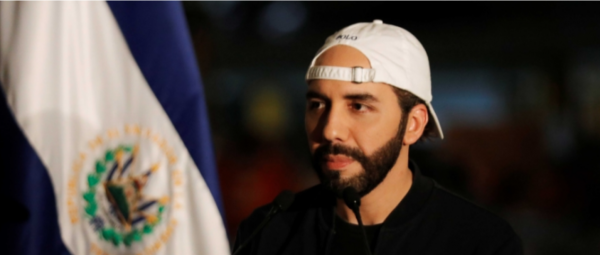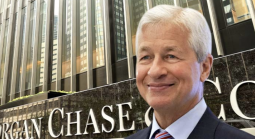El Salvador President Trades Bitcoin Naked and Now Country is Left Exposed
This past year all the rage in the Bitcoin community centered around a proposed city in the crime-ridden gang-infested Central American nation of El Salvador linked entirely to the digital currency and pushed by its young egomaniac - some would say authoritarian - President, Nayib Bukele.
It looked good on paper for sure. "The Legend of The Pink Unicorn", a bedtime story for children, also looks good on paper until one realizes it's just a fairy tale.
Our friends at CoinGeek don't view Bitcoin City as a "fairy tale", however. Instead they have referred to it as a total farce.
And now El Salvador's citizens are starting to catch on (the hard way) just week's after their emperor admitted to wearing no clothes when trading Bitcoin. We'll get to that momentarily.

The city would be getting its energy supply from a volcano. That alone should have scared the bejeebers out of folks. See Tonga.
It was also suggested that North America's fifth poorest nation would not levy any taxes except for value added tax (VAT). That too sounds good on paper. See "The Legend of The Pink Unicorn".
The city will be circular to represent the shape of a large coin and will be built in the south-eastern region of La Unión, President Nayib Bukele said.
The city bird will be LiMu the Emu (joking).
“We’ll start funding in 2022, the bonds will be available in 2022,” Bukele told a cheering crowd at an event late last year.
But as Steven Stradbrooke of CoinGeek pointed out a few months back, Bitcoin City is more style than substance, as more thought has apparently gone into imagining a central plaza shaped like the BTC logo than to more mundane items such as sewage flow.
Bukele, it seems, has left his country exposed; a bit of an irony considering El Presidente admits to regularly trading Bitcoin in the buff.
Naked. https://t.co/9iwU6MoBgG
— Nayib Bukele (@nayibbukele) January 12, 2022
Stradbrooke called it early, revealing what he declared to be a "capital crime".
Anyone who was already casting a skeptical eye at Bukele’s urban planning aspirations—the man clearly never got over Zynga scrapping its CityVille game—felt their eyes roll when Bukele said the city’s development would ultimately cost around 300k BTC (roughly US$16.5 billion). But those eyes fairly popped when Bukele announced plans to finance Bitcoin City’s launch with a $1 billion BTC-denominated bond.
Even better, the bonds—which will be made available next year—will be handled by the tawdry tandem of Blockstream and iFinex. Blockstream are part of the developer cabal that robbed Bitcoin of nearly all its functionality, while iFinex is behind both the sketchy cryptocurrency exchange Bitfinex and the unbacked-by-verifiable-reserves Tether stablecoin. Bitfinex will act as the bond’s official ‘book-runner’ while Blockstream’s ‘I Can’t Believe It’s Not Bitcoin (But It Isn’t)’ Liquid Network will facilitate funds moving in and out of the bond.
Fast forward to now. The naked truth.
Beware of naked millennial presidents bearing Bitcoin, writes Anthony Faiola of MSN.
Since Bukele oversaw the cryptocurrency’s adoption as legal tender three-and-a-half months ago, the vice president of Moody’s credit rating agency estimates that Bitcoin's plunging value has cost the national treasury up to $22 million worth of precious reserves.
The country’s bonds have tanked as well. Fears of diminished financial transparency, meanwhile, has stalled a vital loan deal with the International Monetary Fund. As a result, they've urged El Salvador on Tuesday to drop Bitcoin as legal tender.
“El Salvador now has the most distressed sovereign debt in the world, and it’s because of the Bitcoin folly,” economist Steve Hanke told Fortune. “The markets think that Bukele’s gone mad, and he has.”
Jaime Reusche, vice president at Moody’s, tells Faiola Bukele is still targeting a Bitcoin bond offering in February or March.
“It makes very little sense,” Reusche told me. “If investors wanted exposure to bitcoin, they should simply buy bitcoin, not El Salvador’s risk.”
The Bitcoin foray has proven costly for El Salvador — gambling the country’s treasury reserves on an erratic and exotic instrument while upending an International Monetary Fund deal over concerns that cryptocurrencies make it harder to trace money laundering and corruption, Reusche said.
“We estimate the country has lost between $10 million and $22 million,” Reusche told me. “To lose money on treasury deposits is fairly unprecedented, unless you’re talking about gross economic mismanagement.”
Maybe Bukele should have listened to his own people.
“Over 80 percent of the people surveyed by the El Salvador Chamber of Commerce said that they don’t want remittances in bitcoin, and over nine in 10 rejected the idea of taking their salaries in coins,” Fortune.com's Tully Shawn reported last week.
- Jagajeet Chiba, Gambling911.com














